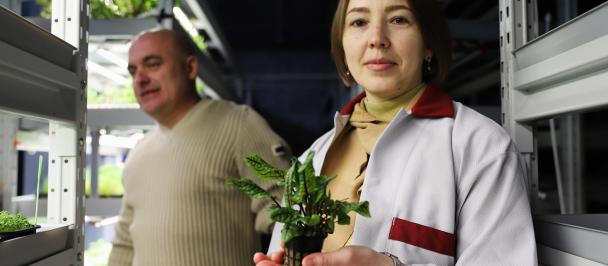Ecotourism Сlusters: Сooperating for People and Nature
September 26, 2024

Republican Landscape Reserve Sinsha, Vitebsk Region
Ecotourism offers more than an opportunity to explore unique landscapes. It allows travelers to immerse themselves in local life and connect with communities whose traditions, crafts, history, and the way of living are shaped by surrounding nature.
This holistic approach capturing the “genius loci”, or spirit of a place, forms the backbone of ecotourism clusters in Belarus — an innovative model that harmonizes nature conservation and local economic growth.
What is an ecotourism cluster?
Ecotourism clusters bring together diverse stakeholders: nature reserves, business, government agencies, educational institutions, artisans, and volunteers.
By collaborating, members of an ecotourism cluster enhance the quality and variety of services while maintaining a shared commitment to environmental stewardship.
Clustering helps participants pool resources and expertise, ensuring that nature conservation, cultural heritage, and local economies all thrive together.
A win-win for all
An ecotourism cluster generates more economic value collectively than individual participants could produce on their own. Members promote each other's services - comfortable accommodation, transportation, excursions, souvenirs, attracting the inflow of tourists and driving income growth across the network.

Members of the Aziory ecotourism cluster
Often clusters include educational institutions that conduct research, train tourism professionals, and develop environmental education.
Local governments provide administrative support, while businesses drive innovation and contribute to the creation of new jobs in rural areas.
Most importantly, the cluster empowers local communities by incorporating their needs and unique knowledge, making them active participants in tourism management.
Such cooperation comes useful when implementing joint activities: regional festivals, tourism forums, and legislative proposals that spread best practices to other regions.
Pioneering ecotourism clusters in Belarus
With support from the UNDP, four ecotourism clusters have emerged in Belarus. Each has developed a new ecotourism product complemented by local partnerships: a narrow-gauge railway in the Aziory nature reserve, Syabrynsky crossroads: reboot in the Naliboki nature reserve, Expedition to the Du Island" in the Asvejsky nature reserve, and a volunteering workshop in the Krasny Bor/Sinsha nature reserves.
Thus, in the Osveisky Nature Reserve, tourists can visit the nearby butter and cheese factory and explore a neo-Gothic church after visiting the island of Du. The visitors to the Ozyory reserve can enjoy a tour to the Myadovy Shlyakh (Honey Way), honey production company. There, they may participate in workshops on beekeeping and honey tasting.

Keys to success: strategy and collaboration
The key to the clusters' success is a clear organization and development strategy. Early on, participants signed partnership declarations, set goals, and established a public environmental coordination council to manage operations.

The participants of the Aziory ecotourism cluster sign the Declaration of Cooperation
Training sessions provided insight into best practices for promoting ecotourism products.
In the next two to three years, each cluster will be operating based on a Development Plan, which identifies competitive advantages, funding opportunities, and training needs of the members.
First results
The impact of these pilot clusters is already evident.
Between 2021 and 2023, tourist numbers increased by 32%, while ecotourism-related income rose by an impressive 77%.
Stefania Lisichenok, Chief Specialist of the State Nature Protection Agency “ECO-ROSY”, highlighted several key issues already resolved through cluster collaboration. For example, in the Krasny Bor and Sinsha reserves, where local stores are far from recreational areas, Yana LLC now provides free food delivery during events.
In partnership with the Beaver’s Hut, a local resort, the reserve launched canoeing trips. Inclusive environmental workshops are regularly held for people with disabilities and the elderly.
Additionally, a unified tourist route was created to guide visitors through the cluster’s sites, helping them plan extended stays. Future plans include developing souvenir displays and joint discount programmes to enhance the tourist experience.

Photo credit: UNDP in Belarus
Ecotourism clusters play an important role in nature conservation and community development by creating synergies between economy and ecology. They bridge the gap between economic growth and nature preservation, ensuring that tourism contributes to the long-term sustainability of the regions.
By bringing people and resources together, these clusters not only safeguard biodiversity but also foster a shared sense of responsibility and benefit for all involved.
Ecotourism clusters were created within the Development of Ecotourism to Promote a Green Transition Towards Inclusive and Sustainable Growth project implemented by the United Nations Development Program (UNDP) in partnership with the Ministry of Natural Resources and Environmental Protection of the Republic of Belarus, with funding from the Russian Federation.

 Locations
Locations











